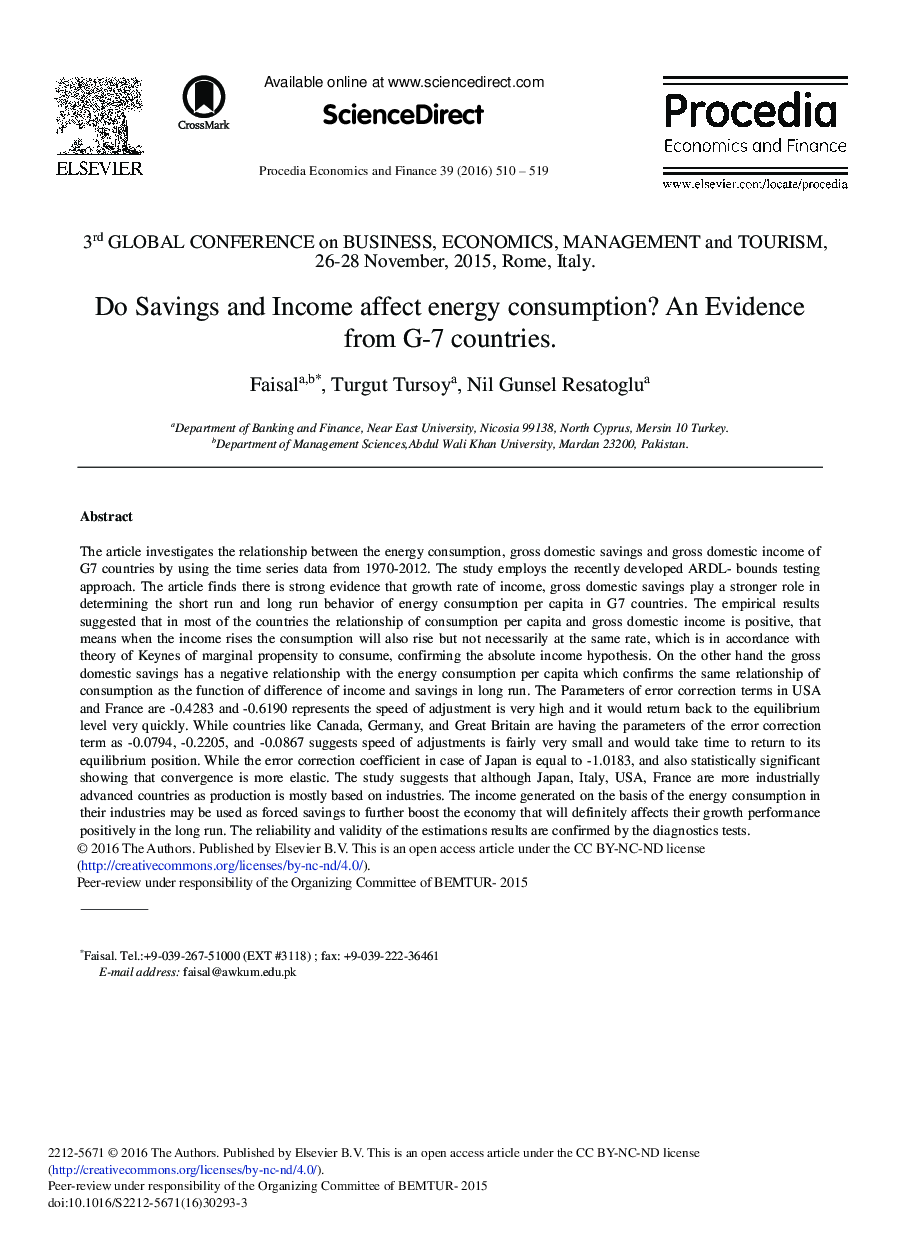| کد مقاله | کد نشریه | سال انتشار | مقاله انگلیسی | نسخه تمام متن |
|---|---|---|---|---|
| 980549 | 1480362 | 2016 | 10 صفحه PDF | دانلود رایگان |
The article investigates the relationship between the energy consumption, gross domestic savings and gross domestic income of G7 countries by using the time series data from 1970-2012. The study employs the recently developed ARDL- bounds testing approach. The article finds there is strong evidence that growth rate of income, gross domestic savings play a stronger role in determining the short run and long run behavior of energy consumption per capita in G7 countries. The empirical results suggested that in most of the countries the relationship of consumption per capita and gross domestic income is positive, that means when the income rises the consumption will also rise but not necessarily at the same rate, which is in accordance with theory of Keynes of marginal propensity to consume, confirming the absolute income hypothesis. On the other hand the gross domestic savings has a negative relationship with the energy consumption per capita which confirms the same relationship of consumption as the function of difference of income and savings in long run. The Parameters of error correction terms in USA and France are -0.4283 and -0.6190 represents the speed of adjustment is very high and it would return back to the equilibrium level very quickly. While countries like Canada, Germany, and Great Britain are having the parameters of the error correction term as -0.0794, -0.2205, and -0.0867 suggests speed of adjustments is fairly very small and would take time to return to its equilibrium position. While the error correction coefficient in case of Japan is equal to -1.0183, and also statistically significant showing that convergence is more elastic. The study suggests that although Japan, Italy, USA, France are more industrially advanced countries as production is mostly based on industries. The income generated on the basis of the energy consumption in their industries may be used as forced savings to further boost the economy that will definitely affects their growth performance positively in the long run. The reliability and validity of the estimations results are confirmed by the diagnostics tests.
Journal: Procedia Economics and Finance - Volume 39, 2016, Pages 510–519
